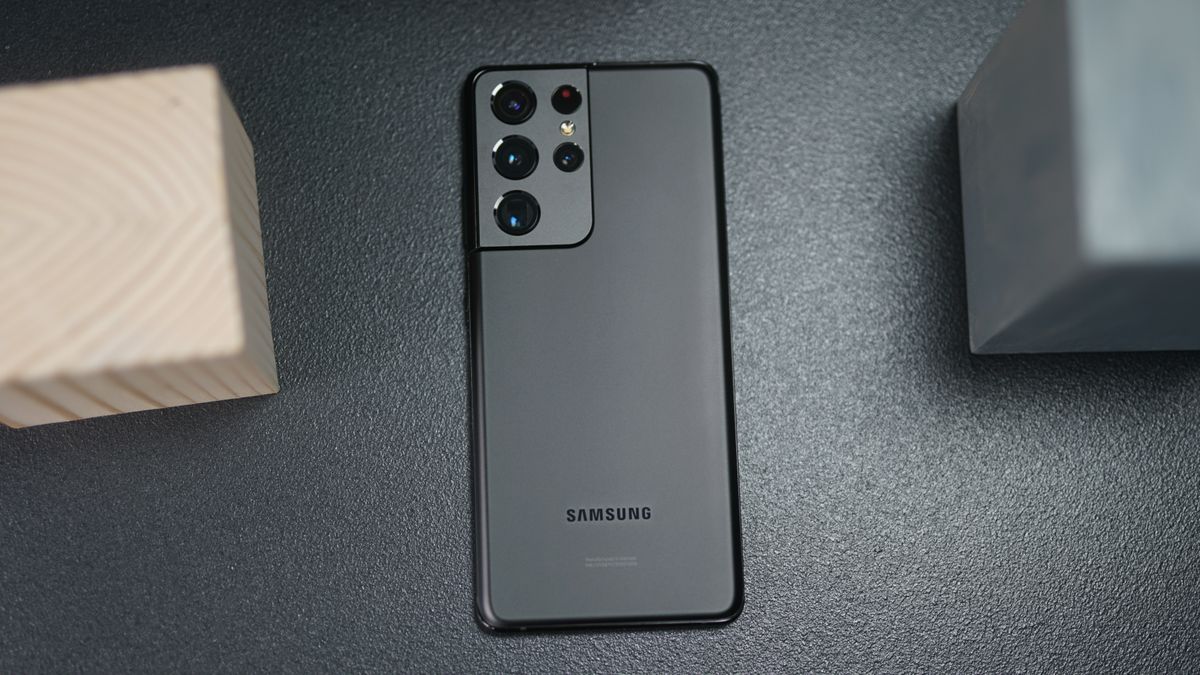The iPhone 12 Pro and Samsung S21 Ultra were two successful flagships in 2020. Please make no mistake: two years later, they are still in demand and can easily give newer phones a run for their money.
Which one should you choose between the two? Let’s have a detailed showdown to see who takes the crown.
Design and display:
The iPhone 12 Pro showcases Apple’s signature minimalist design. You get the usual flat stainless-steel edges and glass back. It’s all very typical, but that exudes sophistication and has proven its utility.
On the other hand, the Samsung Galaxy S21 Ultra has a more modern look. It boasts a curved display that sits comfortably in the aluminium frame. The build quality is excellent for both these phones, as you would expect nothing less from Samsung and Apple.
Ultimately, it boils down to personal preference – sleek minimalism or a modern, curved aesthetic?
Display: Both phones have excellent OLED panels.
The iPhone 12 Pro has a bright and sharp 6.1-inch Super Retina XDR display with 2532 x 1170 pixels resolution. The Galaxy S21 Ultra goes further with a massive 6.8-inch Dynamic AMOLED 2X display and a mind-blowing 3200 x 1440 pixels. The phone continues the tradition of the iPhone 10 in delivering brilliance in design, performance, and camera capabilities.

Fact-check: The Galaxy S21 Ultra’s display offers a 120Hz refresh rate, meaning scrolling and animations appear smoother than the iPhone’s 60Hz refresh rate. This aspect gives the Galaxy 21 a clear edge over the 12 Pro.
Beastly performance guaranteed:
Being flagship offerings, both phones come with robust processors promising solid performances.
The iPhone 12 Pro packs the A14 Bionic chip, known for its lightning-fast performance and unmatched efficiency. Benchmark scores favour the A14 Bionic over the Snapdragon 888 in the Galaxy S21 Ultra in single-core tasks.
However, the gap slims down in multi-core performance; the Galaxy S21 Ultra’s extra cores are handy for specific demanding applications.
An average user, however, will hardly feel any marked difference in performance while using these phones for daily tasks. Whether you edit pictures, play heavy-duty games, multitask, make videos or anything else, you won’t feel any lag in performance.
However, for power users who test their phones to the limits, the A14 Bionic’s edge in single-core tasks might be decisive.
Get Exclusive Discounts on Wise Market Australia
If you are looking for a reliable online store for buying new and refurbished Apple iPhones, tablets, and other gadgets at the best market prices in the Australian market, then Wise Market Australia is your go-to place to shop.
They offer free home delivery, a 3-day money-back guarantee, and express shipping across Australia. We are a 100% Australia-based marketplace and we source the products from trusted and vetted suppliers and sellers.
Point to ponder: The iPhone 12 Pro offers ProRAW, a format that captures uncompressed image data, giving photographers more editing flexibility.
Both phones excel in taking excellent photos and videos. However, the Galaxy S21 Ultra might have a slight edge in low-light photography due to its larger sensor size.
For videographers, the impressive Director’s View feature of Galaxy S21 lets you take simultaneous recordings from multiple lenses. It means you can capture a scene from different angles.
Ultimately, the “better” camera system depends on your preferences. Photographers who value more editing control might favour the iPhone 12 Pro’s ProRAW format. Conversely, videographers might be drawn to the Galaxy S21 Ultra’s Director’s View functionality.
Battery life and charging:
Flagships are notorious for underwhelming battery lives. However, both these phones pack decent batteries – 3,687mAh for the iPhone 12 Pro and 5,000mAh for the Galaxy S21 Ultra. Realistically, you can expect an all-day use on a single charge with moderate usage. However, the Galaxy S21 Ultra has an obvious edge due to its larger battery capacity.
Both phones support fast wired and wireless charging. However, the included charger with the iPhone 12 Pro is only 18W, while the Galaxy S21 Ultra comes with a hefty 45W charger, significantly reducing charging time.
An interesting tidbit: Both phones are compatible with reverse wireless charging, allowing you to charge other devices like your AirPods wirelessly.
Software and ecosystem:
Here, the comparison becomes starker as Samsung uses Android while Apple has its own iOS operating system.
IOS is famous for its user-friendliness, easy integration with other Apple devices, and emphasis on security and privacy.
The Galaxy S21 Ultra, in comparison, utilizes Google’s Android operating system. Android has more customization options, an open app ecosystem with a broader range of choices, and increased flexibility for power users.
However, updates can be slower and fragmented as different Android versions exist.
Point to consider: The long-term software support offered by Apple is priceless. The iPhone 12 Pro, released in late 2020, is still eligible for software updates in mid-2024. This extended support ensures your phone remains contemporary, secure, and modern and performs optimally.
Historically, Android updates slow down significantly after a few years, potentially leaving your phone vulnerable and dated.
Who is the winner?
There’s no single and clear winner in this ultimate flagship showdown. The iPhone 12 Pro and Samsung Galaxy S21 Ultra are phenomenal phones, each catering to specific user preferences.
Here’s a breakdown to help you decide:
Choose the iPhone 12 Pro if you:
- Like a minimalist, sleek design.
- Prefer a smooth ecosystem with other Apple devices.
- Appreciate top-notch performance, especially in single-core tasks.
- Need a camera system with ProRAW for advanced editing control.
- Prefer a user-friendly, secure, and long-term software-supported technology experience.
Choose the Samsung Galaxy S21 Ultra if you:
- Favour a large, curved display with a higher refresh rate.
- Want a versatile camera system with dedicated zoom capabilities.
- Appreciate the flexibility and broader app selection of the Android platform.
- Value a longer battery life and faster wired charging capabilities.
- Enjoy the freedom to customize your phone’s interface and features.


